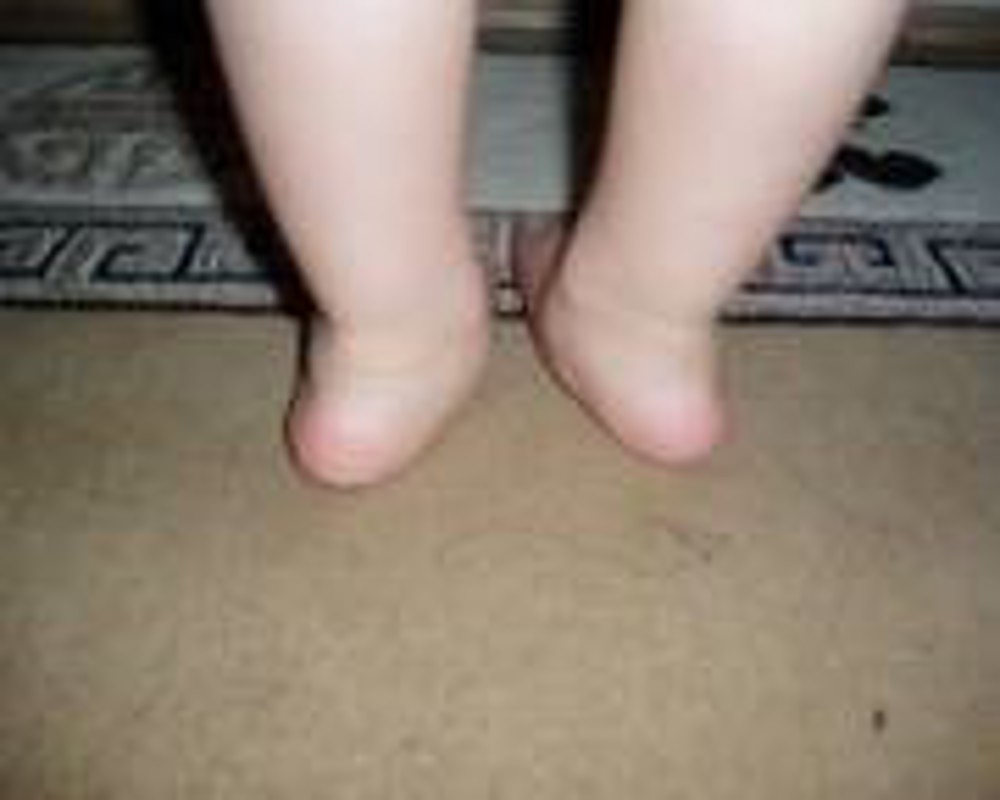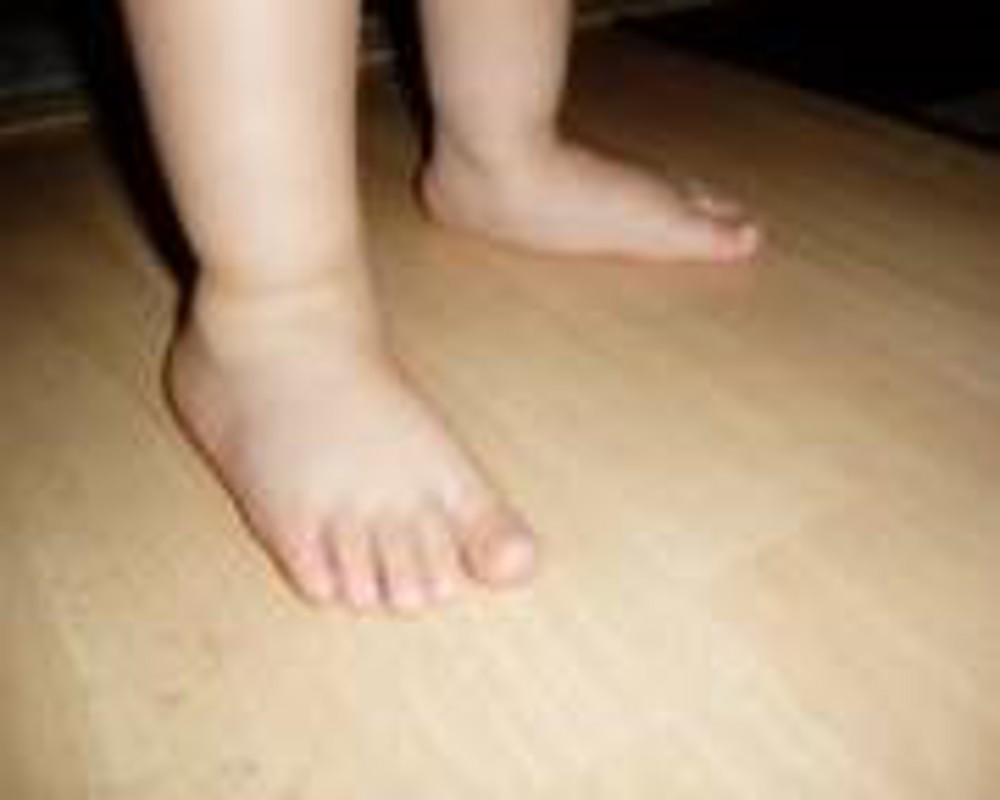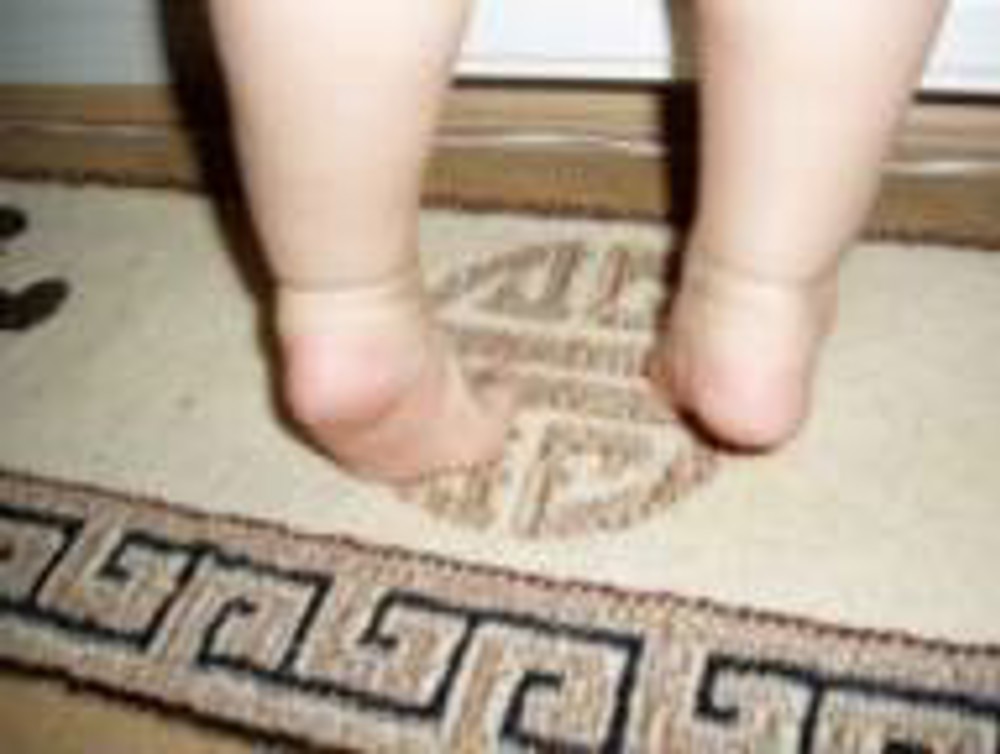What are flat feet?
A flat foot is when the arch on the inner border of the foot is not as high as normal. The foot can also look like the ankle bone on the inside is more prominent or that the whole foot seems tilted.
It's quite normal for children and young people to have flexible flat feet.
What causes flat feet?
Most children have some degree of flat foot, and it's usually quite normal. This is because children have more springy tissues than adults and slightly more fat in the soles of their feet making their feet look flatter.
Everyone is different and some children appear to have flatter feet than others. This sort of variation is normal.



A typical 2-year old’s feet showing flat arches and valgus heels on standing with reappearance of the medial arch and inward tilting of the heel on tip-toe standing.
Should they be treated?
We don't recommend using insoles or special exercises because the feet will develop normally without them.
Studies have shown that insoles or arch supports do not help the arches of the foot to develop in childhood. Most children will have normal arches by age 14.
Choosing footwear
You should avoid hard, unsupportive, flat-soled shoes because they won’t provide the foot with support.
Try to choose well fitted shoes that provide good support for the feet. As children grow they will need their feet measured regularly.
What if the feet are still flat at age 14?
The children who don't develop a normal arch by 14 very rarely have any problems with their feet.
Occasionally some young people and adults with flexible flat feet can develop ankle or knee pain, in which case an arch supporting shoe or insole can be helpful at that stage.
When should you speak to a healthcare professional?
Very occasionally a flat foot can be a sign of a more serious problem; if only one foot is flat or the foot is painful then it is a good idea to be seen by a healthcare professional.
Special tests are not usually needed. The healthcare professional will be able to spot this by examining your child.
If your healthcare professional is happy that there is nothing to worry about then you should consider the appearance of your child’s feet as perfectly normal and will not limit your child in any way.
Accessible formats
If you require this information in a community language or alternative format such as Braille, audio, large print, BSL, or Easy Read, please contact the Equality and Human Rights Team at: email: fife.EqualityandHumanRights@nhs.scot or phone 01592 729130. For people with a hearing or verbal impairment you can also contact the team through the NHS Fife SMS text service number on 07805800005.




